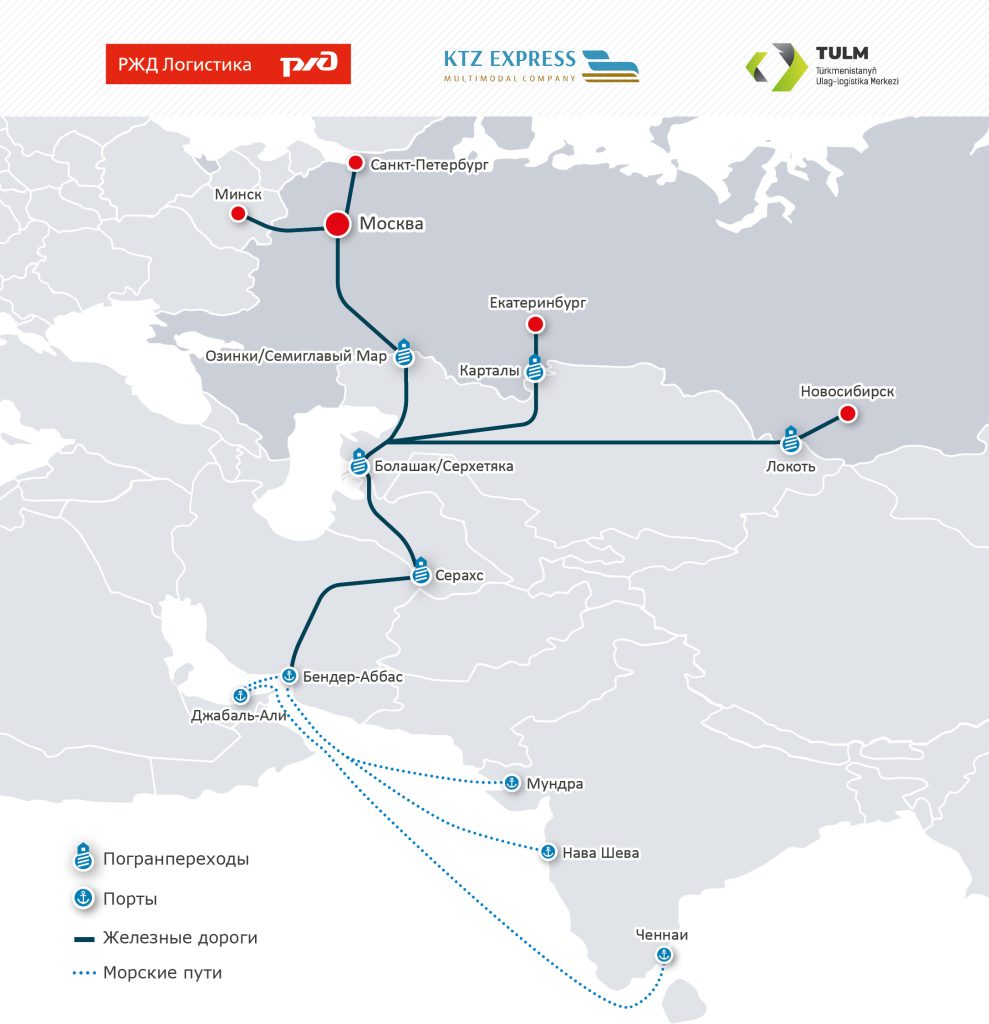The Caspian International Integration Club “North-South” is an expert and coordination platform for the promotion of the International North–South Transport Corridor (INSTC), may open its representative offices in Turkmenistan and other Central Asian countries. The statement came from the chairman of the Club Ramazan Abdulatipov at the opening ceremony of the Club’s branch in New Delhi, reports TASS.
The club is actively engaged in activities that will help to forge the attractiveness of the corridor – contacts are being established with the governments of the participating countries, documents are being elaborated at the public level.
Abdulatipov stressed that the club is trying to attract various regions of Russia, CIS countries, and especially Central Asian ones to its activities.
“Such work is underway, and in the near future, I think [director of the North-South club] Dmitry Borisovich [Dubovik] will do a lot of work on opening the representative offices in Baku, Tashkent, Ashgabat and so on,” the chairman of the Club said.
Earlier, RIA Novosti reported that the Club’s branches may open in Azerbaijan, Kazakhstan, Kyrgyzstan, Uzbekistan and Turkmenistan until 2025.
Initiatives of the club to increase the attractiveness of INSTC
Caspian International Integration Club “North -South” seeks to simplify procedures for the promotion of goods along the route of the corridor, Abdulatipov said.
Such endeavors that can facilitate smooth cargo flows along the North-South include, for example, the introduction of a single document for the entire route.
“These are issues that we put before the government, in particular, so that there is a single document along the entire route, there is a need for sanitary passages along the entire route, there is a need for an operator along the entire route, so that many customs barriers are removed, and so on,” Abdulatipov told.
More advantageous than the Suez Canal
Speaking about the advantages of the North-South transport corridor, Abdulatipov underlined that this route is much more profitable than the logistics offered by the Suez Canal. “We tried to ship the first containers, and these containers pass along the St. Petersburg – Mumbai route in 20 days. Through the Suez Canal – in 40 days. Thereby, it is shorter and cheaper,” he explained.
Despite the Western sanctions, traffic along INSTC, albeit slowly, continues to gain momentum.
In addition to Russia, Iran and India, the corridor spans currently over 10 countries, including Belarus, Turkmenistan, Kazakhstan, Azerbaijan and others.
Traffic is growing
According to Abdulatipov, now about 20,000 containers a year are transported along the North-South corridor compared to 9,000 two years ago.
He noted that, according to initial estimates, the INSTC has the capacity to transport about 6 million containers per year. In the future, traffic may reach about 20 million containers along the entire route from Europe to India via Iran.
***
The Caspian International Integration Club “North-South” was found in 2016 as an expert and coordination platform for meetings of representatives of the public and private sector, public figures, and scientists from the Caspian and other Eurasian countries interested in integration, development through improved logistics, and interaction along the entire route of the international transport corridor North-South. ///nCa, 20 April 2023
